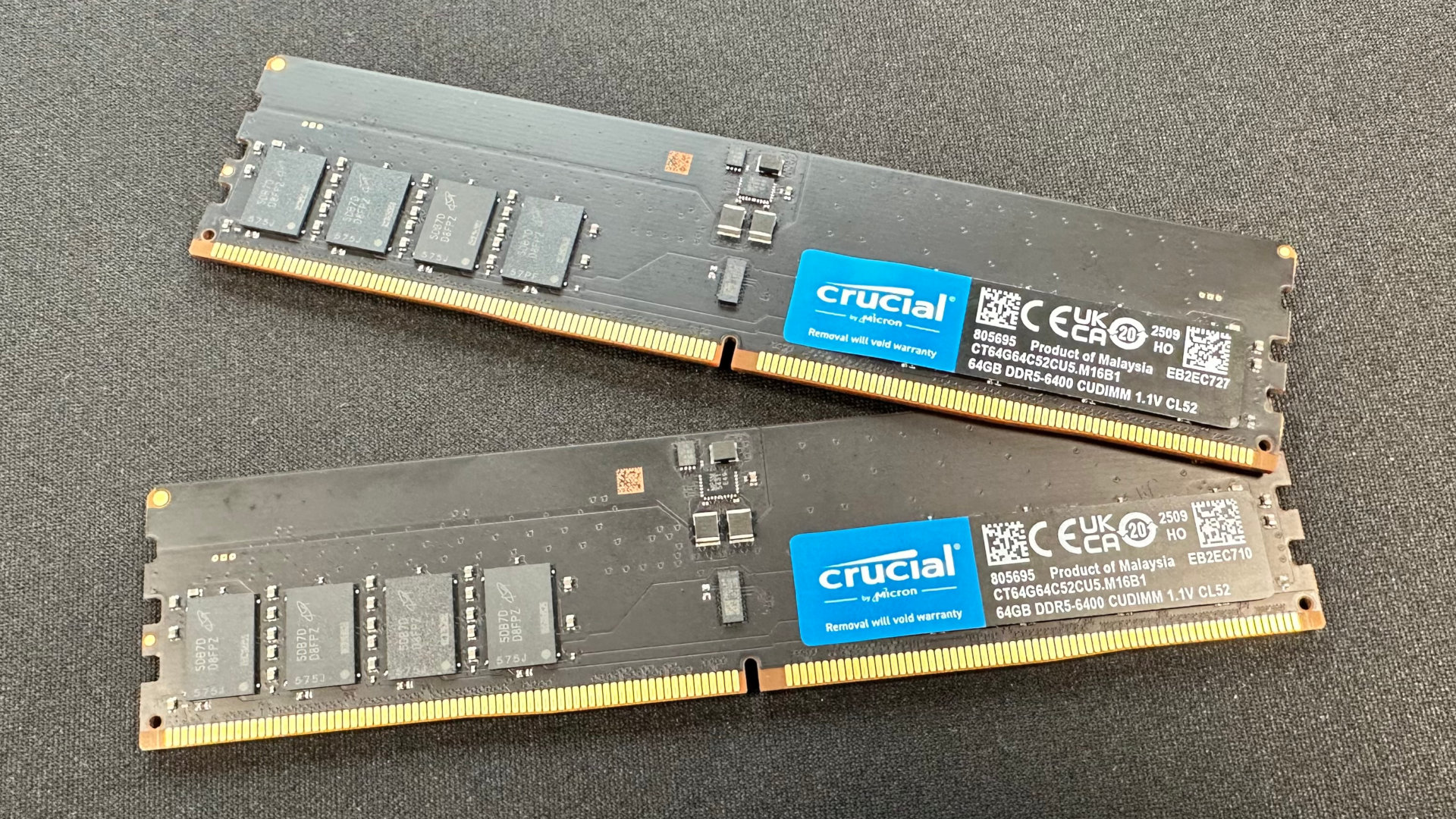Chained Echoes is a JRPG throwback that isn't scared to throw out old ideas
A speedy, deeply clever battle system helps Chained Echoes stand out from other 16-bit-inspired RPGs.
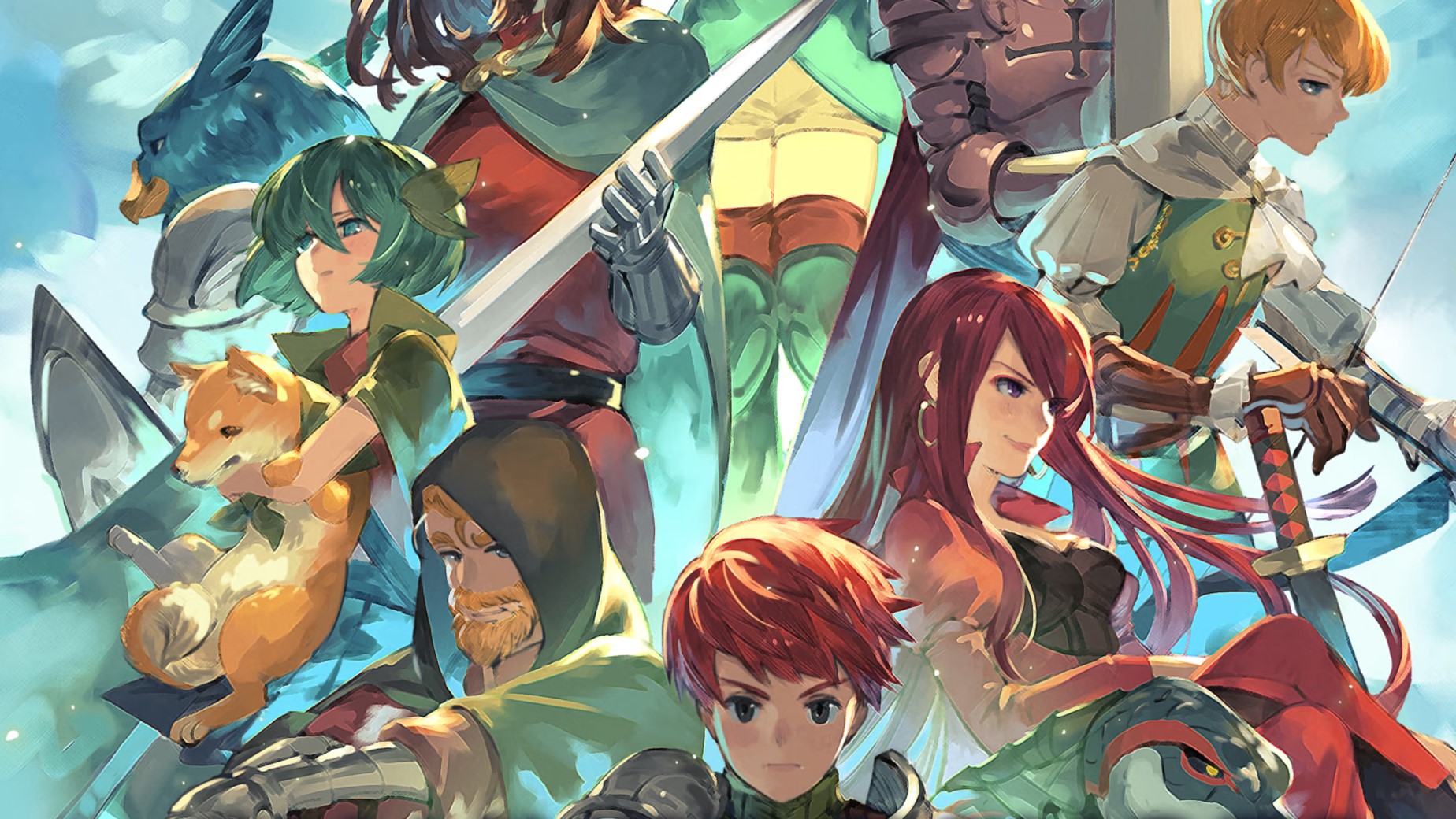
Like clockwork, a wink-and-a-nod '90s RPG homage pops up just as soon as I've put down the last one. The era's enchanting style and sense of adventure occasionally leads my judgment astray, and I end up playing a modern PPG built from the tired throwback playbook of Excessively Repetitive or Painfully Wistful. Invoking the sentiment of games like Xenogears or Final Fantasy makes for an easy enough hook.
It's also been done to death. But Chained Echoes is more than that. Its charms don't begin and end with familiarity—there's a thoughtful balance between pieces of 'back then' and now.
Chained Echoes doesn't play coy about its inspirations. The story quickly introduces its first major city wrapped in political turmoil, Farnsport, with the usual world-building history lessons—there’s a messy war going on, a bunch of nobles don’t care about it, also beware of bad ancient relics, etc. Give the drama a little room to wind up, though, and suddenly you're 10 hours in and overly invested in the specifics of Just Some Guy's trauma (his name is Glenn).
It's a delicate make-or-break few hours for these kinds of games, but Chained Echoes' small novelties and delightful "remember when?" tributes keep tricking me into just one more hour. Entering Farnsport as its people host a festive bash à la The Millennial Fair appeals to the part of me that cries over passing mention of Chrono Trigger. The absolutely ridiculous action movie sequences baked into its turn-based combat, which never feels needlessly punitive, appeals to the tired 2022 me that became extra critical of grindy games with time.
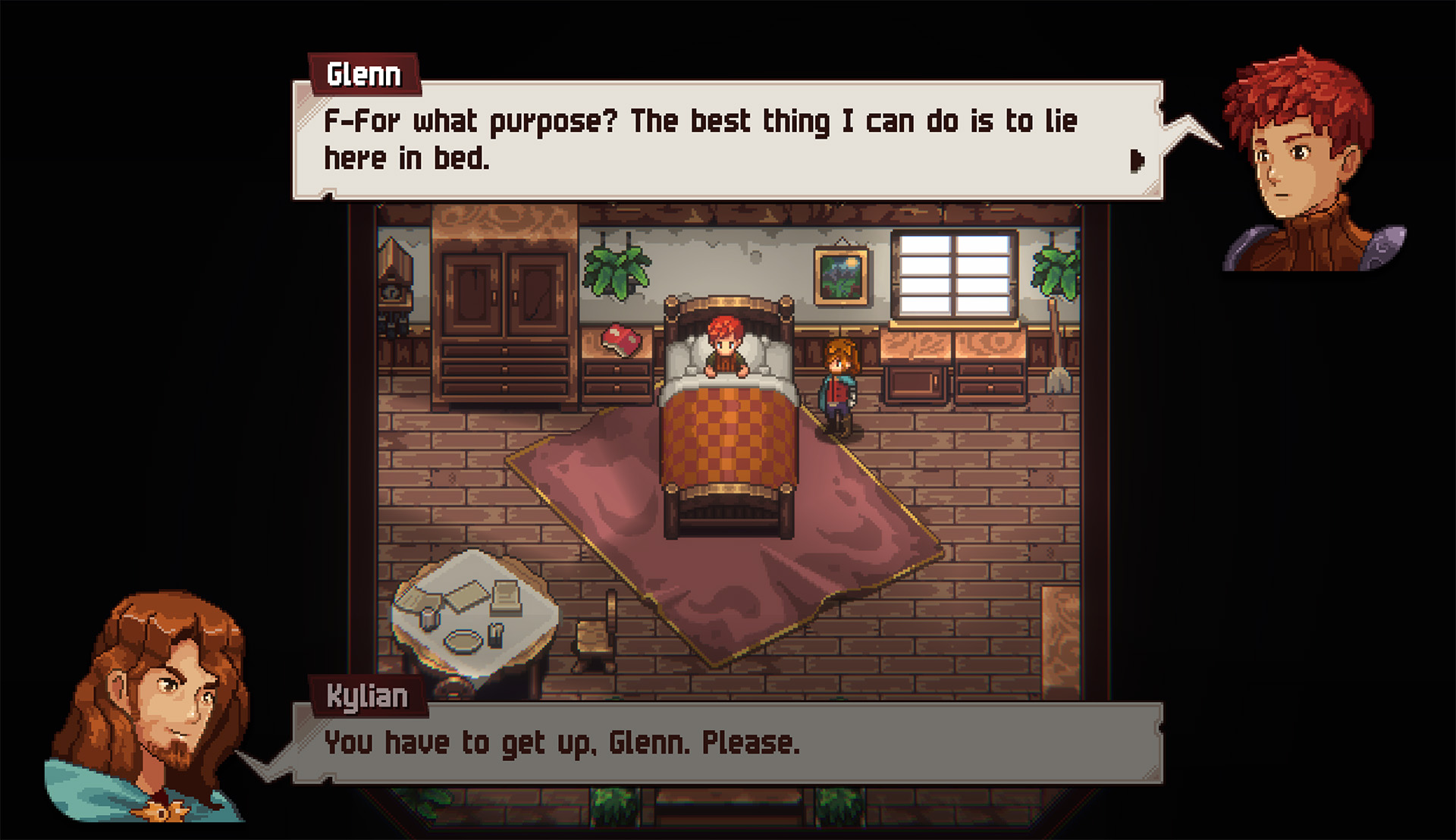
In Chained Echoes, battles move fast—like really fast. You can technically spend all week refusing to make a move since it's turn-based, but it all looks so damn good when you're smashing in commands and it's moving. The world of Valandis knows I want storybook color palettes, characters that bob during battle, and cartoonishly flashy effects exaggerated for clarity. The 16-bit look feels unconstrained from hardware limitations that could've held back snappy animations or flashy spectacle. Sprites, attacks, and environments are so delightfully theatrical I found it easy to plow forward to the next battle for the sights and get myself killed.
That's no knock on Chained Echoes being too brutal, though. Sometimes you just really wanna see how swish a new skill looks, and things go to hell.
While Chained Echoes' artistic sparkle is captivating, I'm more endeared to the journey thanks to systems not solely focused on the most sacred parts of old RPGs. Something something "if it ain't broke, don't fix it" remains evergreen advice, but that's no excuse to stop iterating on traditional turn-based formulas and heavy-handed punishments for picking the wrong fight.
Keep up to date with the most important stories and the best deals, as picked by the PC Gamer team.
As enemies lined up to deliver their first few butt-whoopings, I found myself miserably confused by the overdrive system and irritated by UI elements that didn't immediately click. Chained Echoes plainly lays it all out, but my habitual overthinking refused to let the system be as simple and uniquely compelling as it is. The crux of combat boils down to keeping a little arrow in the upper left corner within the safe zone, green, slotted between orange and red. It’s kind of like an Active Reload mechanic but for your skill choices; make the right actions every turn and you're rewarded with extra powerful hits. A handful of other small tweaks fold into the fray later, but it's still simple in a subtly brilliant way.
Fights begin with the overdrive arrow in orange, which doesn't bestow snazzy buffs. Green rewards the party with optimal damage. My goal is to keep things steady in the middle, so the fun comes from how the arrow pivots between colors. I can't use Armor Break just because I think a baddie needs their armor broken; I've got to check the symbol beside the skill and see if it corresponds with my ever-changing overdrive rules. If the symbols match, the arrow moves back. If the symbols don't match, I'm closer to red. We don't wanna talk about red.
Chained Echoes doesn't make this needlessly complex: it's pretty damn clever for a layer of added depth on an old-school back and forth. In the JRPG heyday, I loved Final Fantasy 9's Vivi ending battles with his magic spam, but that was always it—spam. I mash the same attacks on three other party members while Vivi burns down a line of foes. It was cool for the time, but the formula of mostly meaningless random battles overstayed its welcome. Chained Echos solves that monotony, giving me a fun new toy to manage while improving the old one.
It's not a grid-based tactical RPG, but those extra components often make me stew on my next move and offer the same satisfaction in success. Negotiating risk and reward for toeing either side of the line tickles the part of my brain eager to dance along the edge of disaster. I'm constantly thumbing through my party to ensure I have an appropriate range of skill types on hand. Sometimes I fumble hard and the gauge spirals toward red. Then there are encounters where I never cross the lines, and I walk away feeling genius.
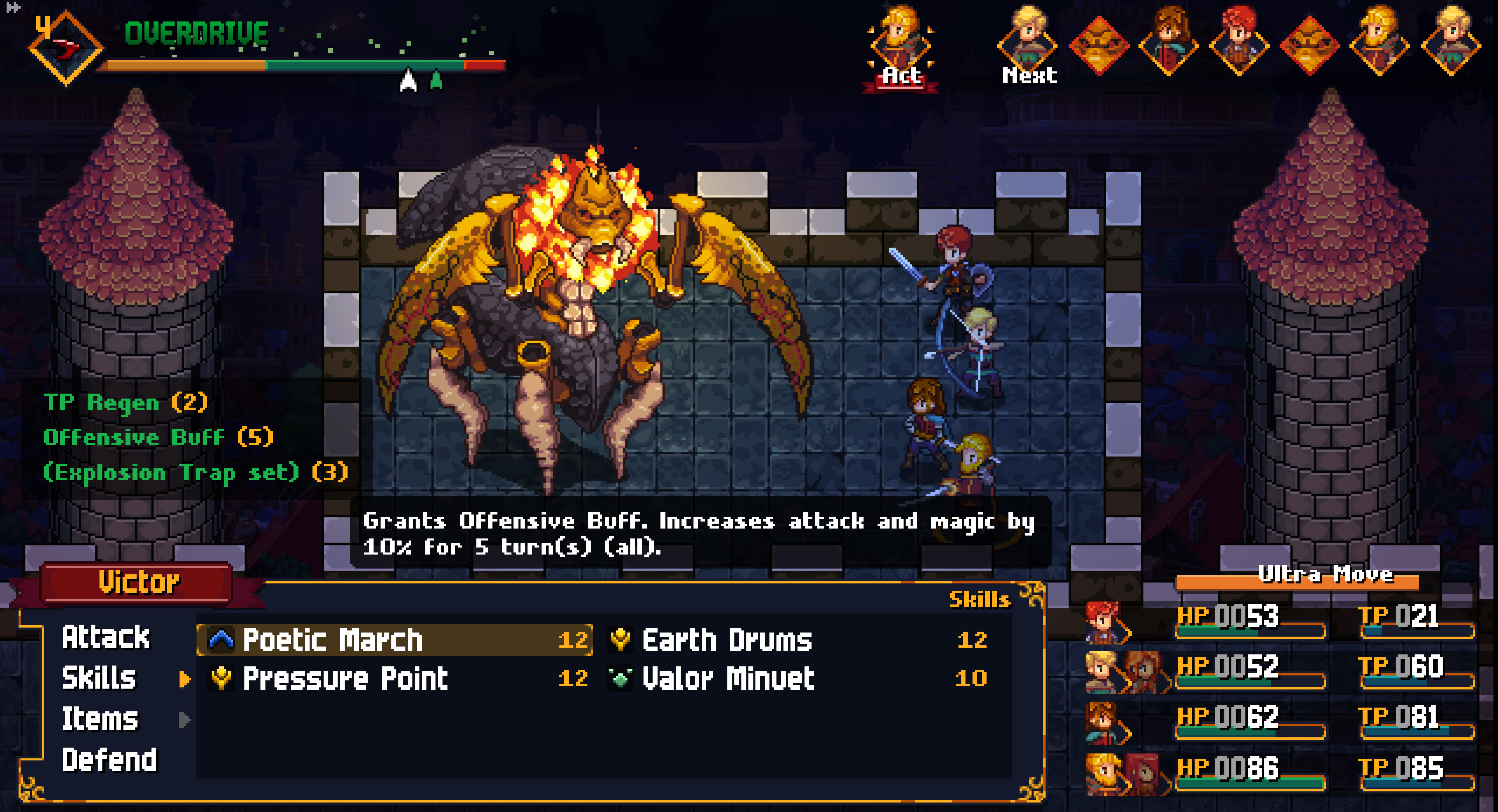
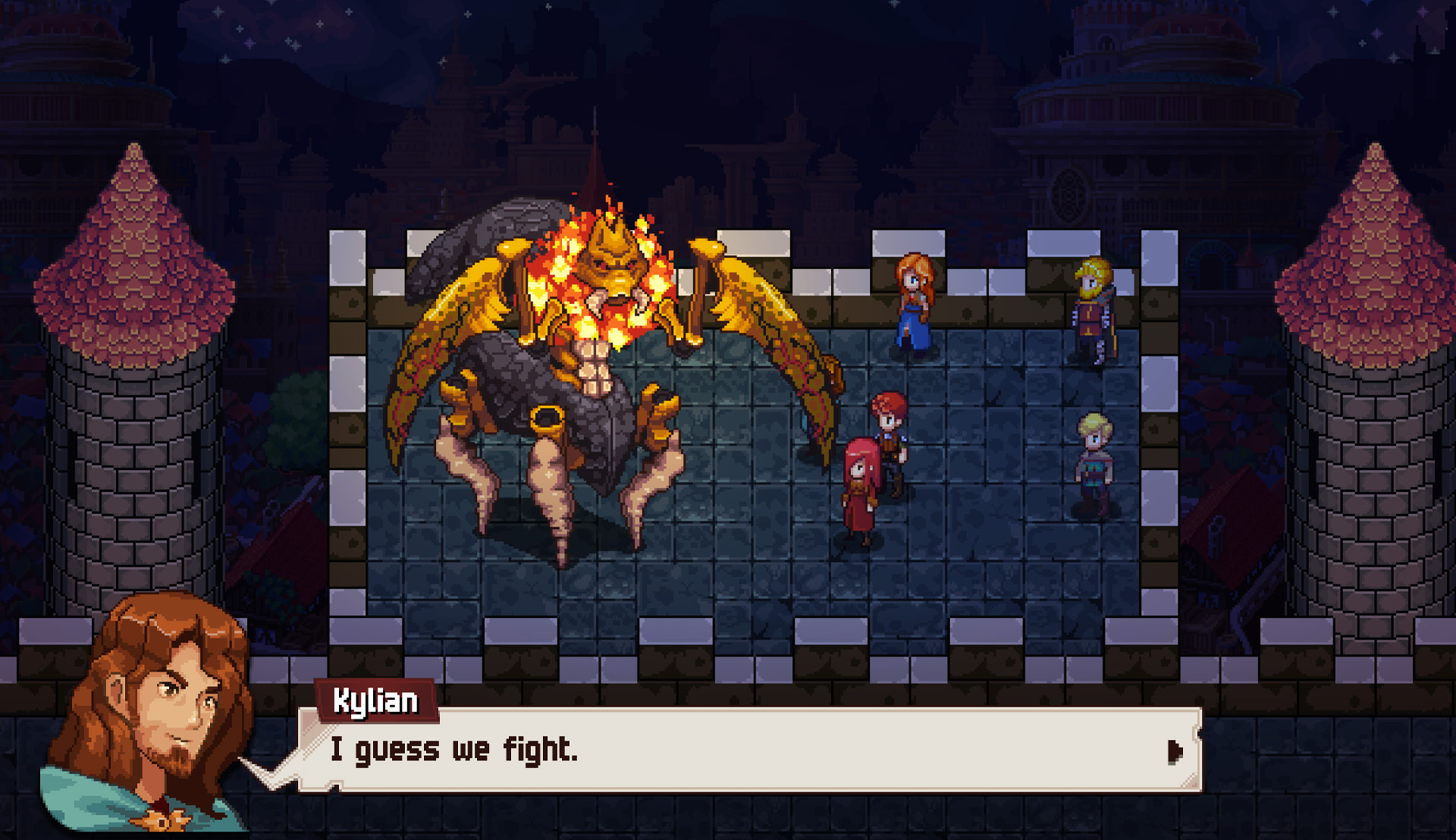
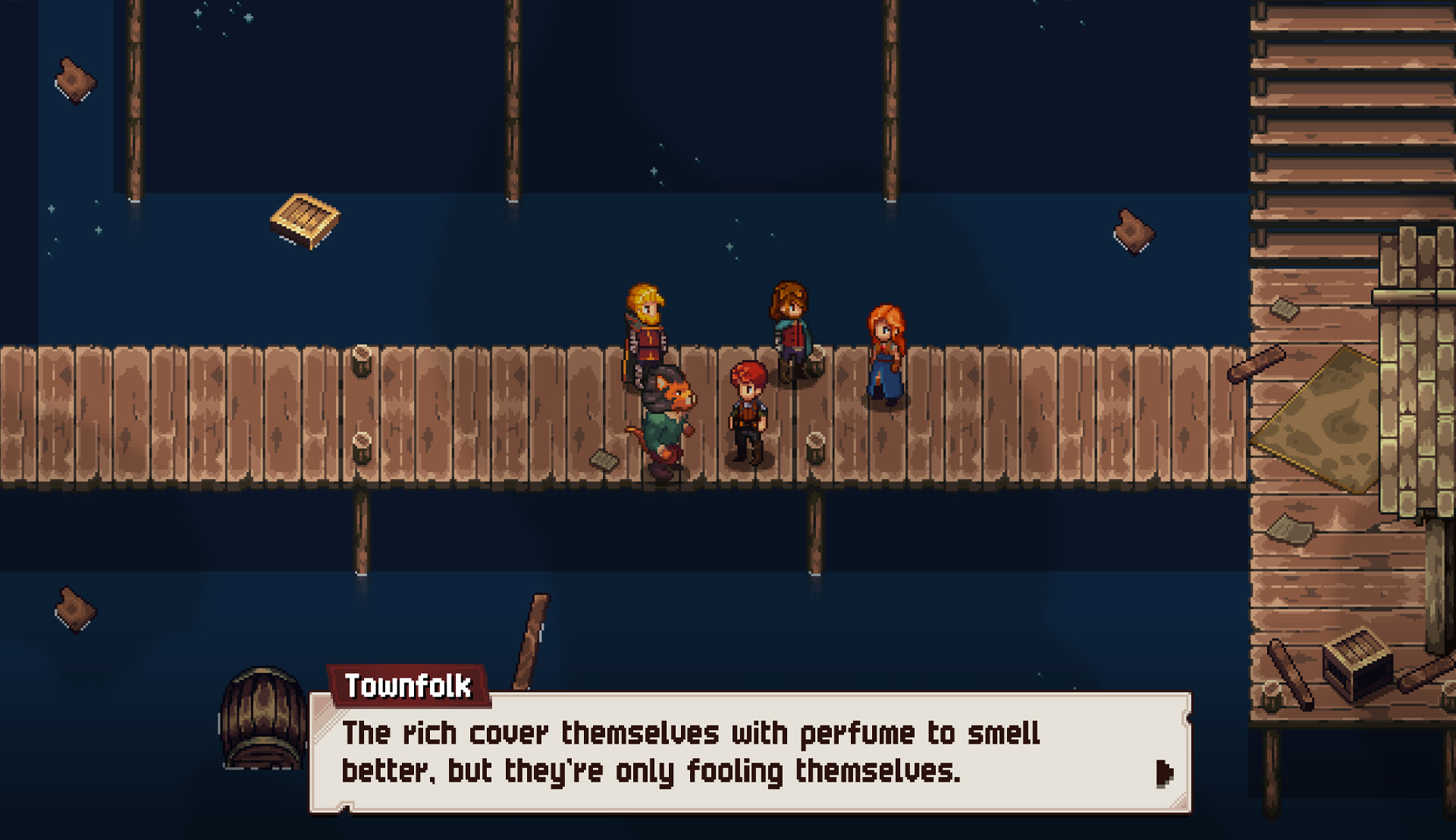
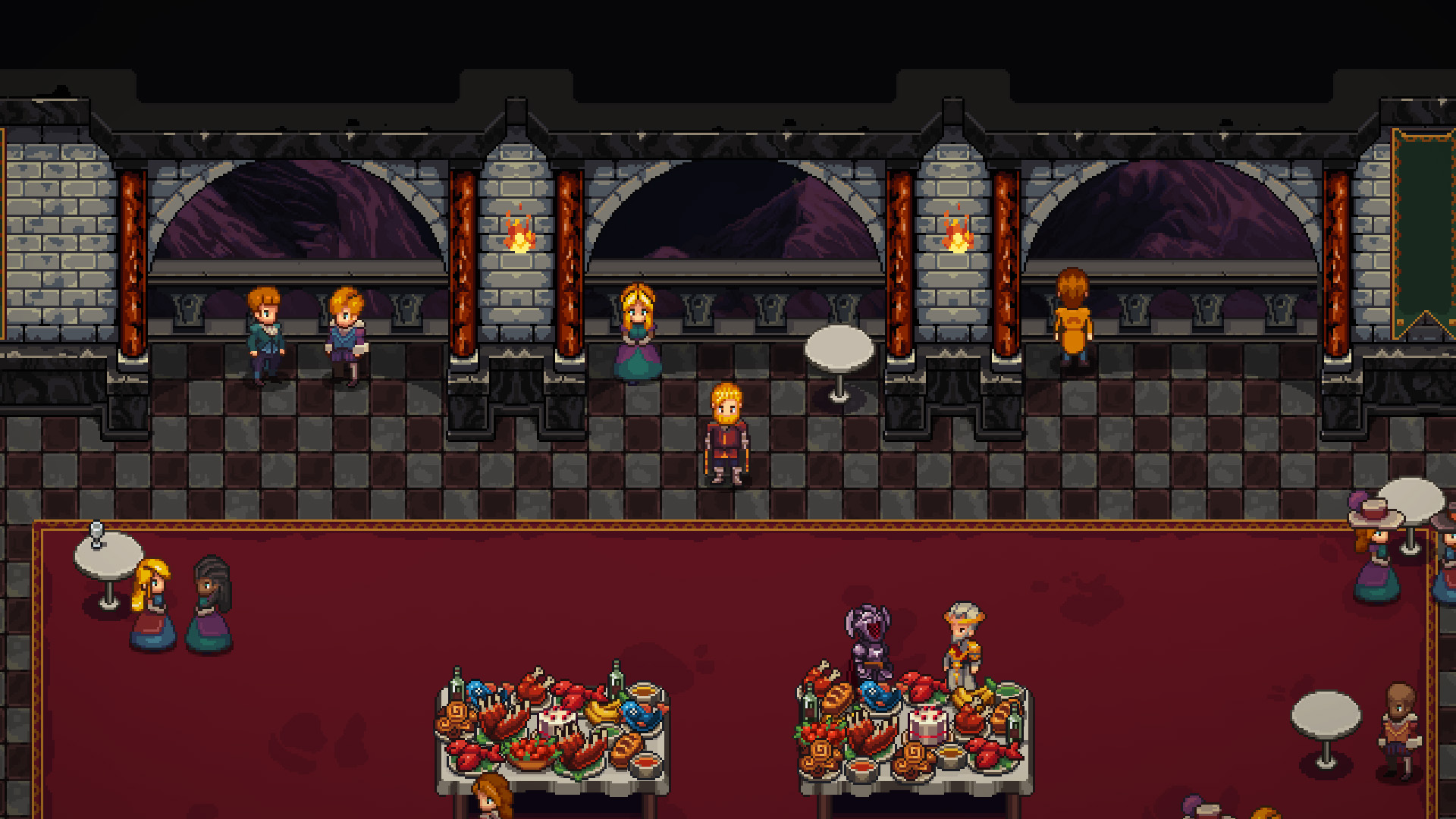
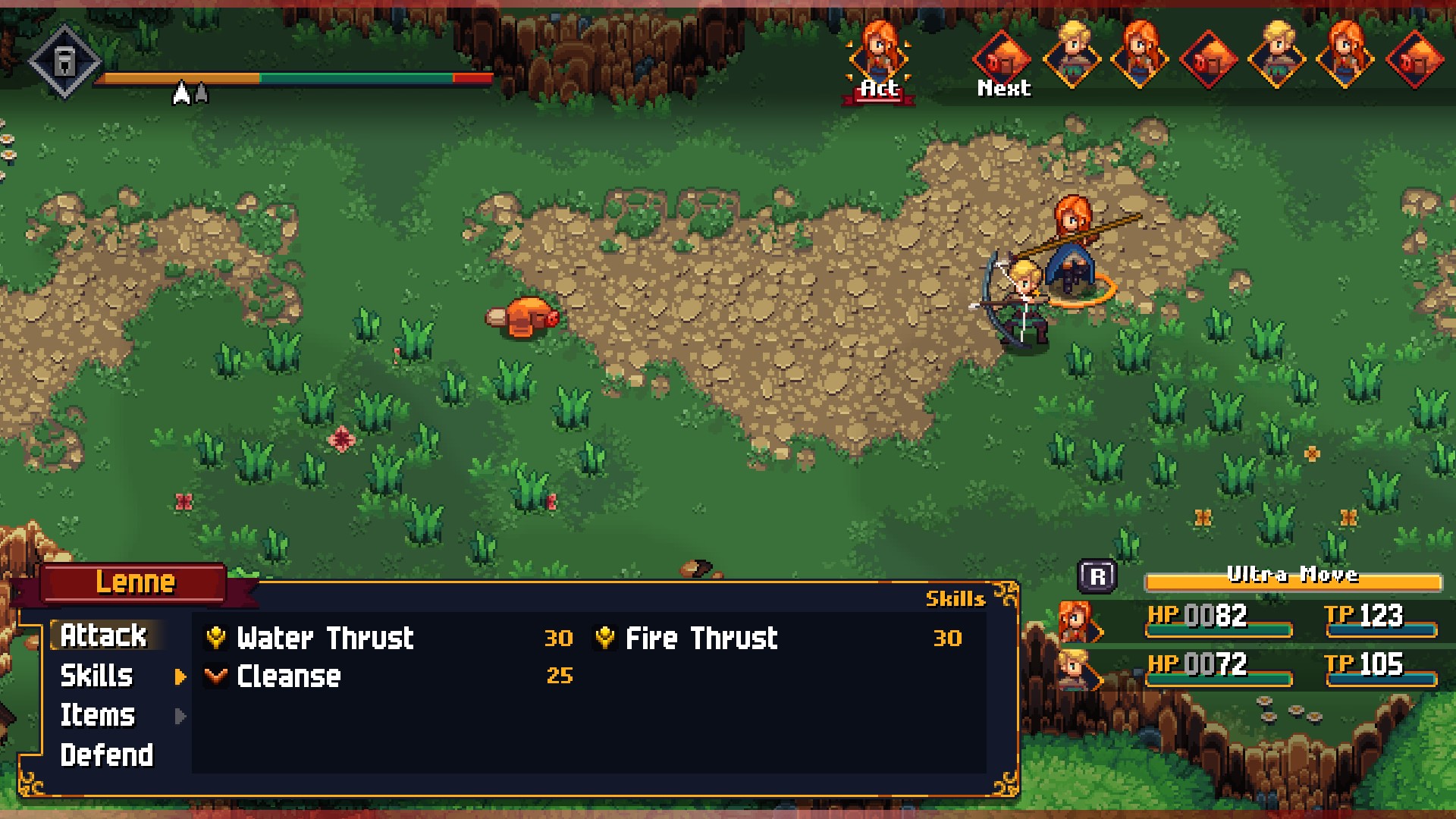
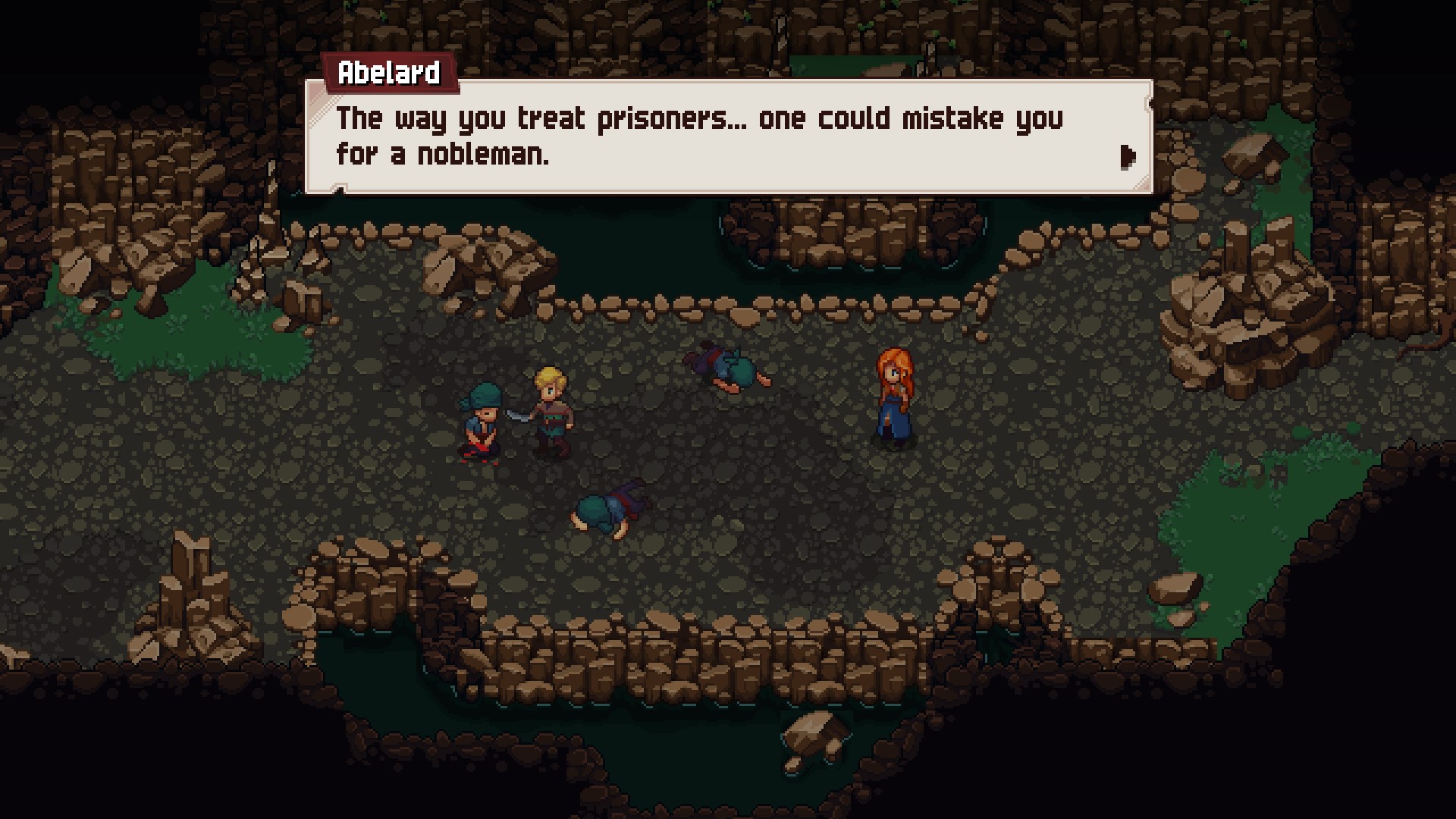
The overdrive mechanic wouldn't shine in older, more brutal RPGs that punished failure with time-consuming chores.But Chained Echoes eschews pesky random encounters, long treks to inns, and endless grinds—it just doesn't see the point in them. There's no reward for my old habits established by 80-hour time sinks. Party members don't receive experience points; there's nothing driving my constant urge to see numbers go up. It has skill points (SP), but unlocking more skills to dump those points into takes another currency primarily gated by quest progression.
It took me a while to realize that I didn't need to play Chained Echoes like an old Final Fantasy. Persistently visible enemies help breadcrumb my party forward through new areas, and I'm always willing to try the next fight since my party fully recovers between brawls. Failure just means restarting until I nail it; I'm not penalized with a waste of time.
So far I've met a princess struggling to fit in, reminiscent of Final Fantasy 9's Garnet, and hopped into the cockpit of mechs that'd make Xenogears proud. Those parts always charm, but the game isn't carried by sentiment. Chained Echoes is a real testament against conflating complexity and intrigue with the needlessly obtuse and nostalgic. Rewards manifest as swift wins, a punchy series of attacks executed to the well-planned beat of a masterfully maintained overdrive gauge. Chained Echoes shows a fondness for the RPG renaissance, but is more concerned with sketching a future without the punitive, archaic ideas that would only slow it down.

Andrea has been covering games for nearly a decade, picking up bylines at IGN, USA Today, Fanbyte, and Destructoid before joining the PC Gamer team in 2025. She's got a soft spot for older RPGs and is willing to try just about anything with a lovey-dovey "I can fix them" romance element. Her weekly to-do always includes a bit of MMO time, endlessly achievement hunting and raiding in Final Fantasy 14. Outside of those staples, she's often got a few survival-crafting games on rotation and loves a good scare in co-op horror games.

